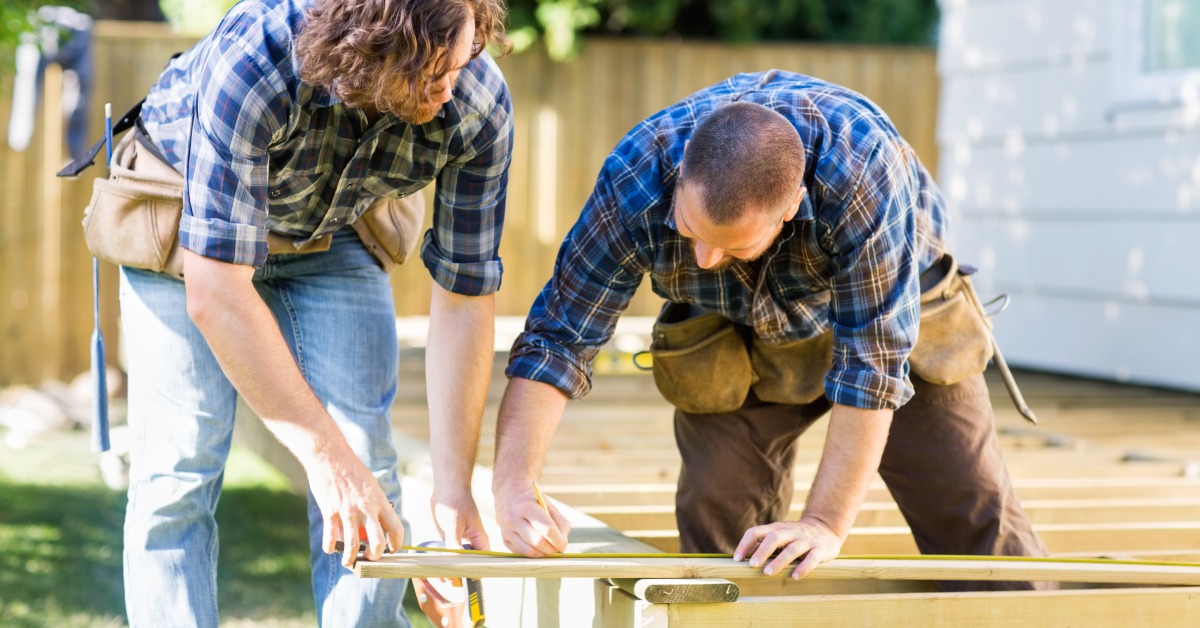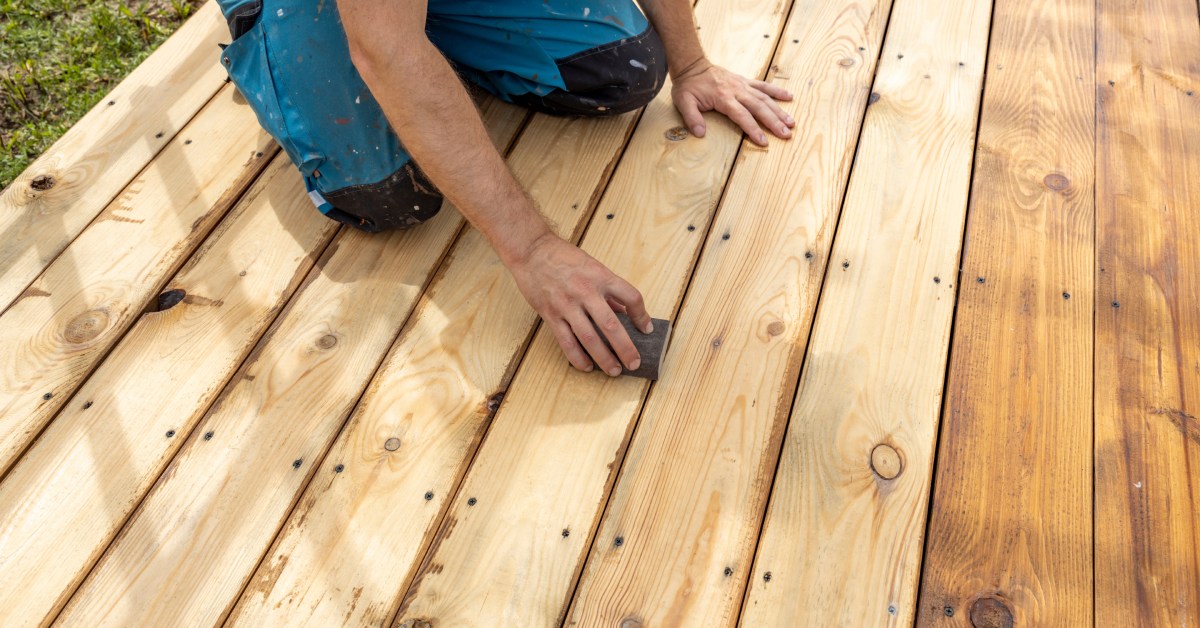Your dream of a beautiful deck is finally within reach, but where do you start? Choosing the right deck contractor is crucial to transforming your vision into reality. This guide will walk you through everything you need to know to make a smart decision. There’s a lot to go over with a contractor, so we’ll make sure you’re well-prepared for the conversations ahead of you.
Why a Quality Deck Matters
A well-built deck adds value to your home and enhances your outdoor living experience. Whether you envision a place for family gatherings or a peaceful nook for reading, the right deck can make all the difference. Poorly constructed decks, however, can lead to safety hazards and costly repairs down the line.
The Benefits of a Professional Deck
A professionally built deck offers durability, aesthetic appeal, and added property value. Experts ensure that the deck adheres to building codes and is structurally sound. With our experience, we can recommend the best materials and design options that suit your style and budget.
Common Deck Problems
Common issues with DIY or poorly constructed decks include uneven surfaces, wobbling railings, and water damage. These problems not only diminish the deck’s appearance but also pose significant safety risks. Professional contractors can mitigate these issues, ensuring your deck is both beautiful and safe.
Boosting Home Value
Real estate experts agree that a quality deck can significantly boost your home’s market value. Potential buyers often see a well-maintained deck as a desirable feature, making your property stand out in a competitive market.

Researching Potential Contractors
Before you hire a deck contractor, it’s important to do your homework. Researching potential contractors helps you narrow down your options and find the best fit for your project.
Reading Reviews and Testimonials
Start by reading online reviews and testimonials. Tools such as Yelp, Google Business Profile, and Houzz provide insights from previous clients. Put your trust in a contractor with consistently high ratings and positive feedback regarding their professionalism and quality of work.
Checking Credentials
Ensure that your contractor is licensed and insured. Licensing requirements vary by state, so verify what’s necessary in your area. Insurance protects you from liability in case of accidents or damage during the project.
Asking for References
Don’t hesitate to ask potential deck and porch contractors for references. Speaking directly with past clients can provide valuable insights into the contractor’s reliability and craftsmanship. Ask about their overall experience, the quality of the work, and any issues that arose during the project.
Designing Your Dream Deck
Design is a crucial aspect of your deck project. A well-thought-out design contributes to a final result that meets your needs and complements your home’s architecture.
Defining Your Deck’s Purpose
Consider how you plan to use your deck. Is it for entertaining guests, creating an outdoor kitchen, or enjoying quiet evenings? Defining its purpose helps guide design decisions, such as size, layout, and necessary features.
Choosing the Right Layout
The layout of your deck should harmonize with your home and yard. Think about access points, traffic flow, and how you plan to use different areas. Working with the right contractor can help you visualize and refine your ideas.
Incorporating Safety Features
Safety is paramount when designing a deck. Check for proper railing height, secure stairways, and adequate lighting. Your contractor can advise on building codes and safety regulations to make your deck both functional and compliant.
Assessing Contractor Proposals
Once you’ve shortlisted potential contractors, it’s time to request proposals. Comparing proposals helps you understand the scope of work, timeline, and costs involved.
What To Look For in a Proposal
A comprehensive proposal should include detailed descriptions of the work, materials, labor, and any additional costs. It should also outline the project timeline and payment schedule. Make sure you clearly understand what’s included and what might incur extra charges.
Comparing Cost Estimates
While it’s tempting to choose the lowest bid, consider the value offered. Look at the quality of materials, the contractor’s experience, and the scope of services provided. Sometimes, a higher initial investment can save you money in the long run by avoiding costly repairs or replacements.
Clarifying Warranties and Guarantees
Ask about warranties and guarantees on both materials and workmanship. A reputable contractor should offer assurances that protect you against defects and issues after the project’s completion.

Conducting Interviews
Interviewing potential contractors allows you to gauge their professionalism, expertise, and compatibility with your project.
Preparing Questions
Prepare a list of questions to ask during the interview. Inquire about their experience with similar projects, their process, and how they handle unexpected challenges. Also, ask about their communication style and how they manage project timelines.
Assessing Communication Skills
Effective communication is vital for a successful project. Assess how well the contractor listens to your ideas and concerns. Are they responsive and clear in their explanations? Good communication builds trust and ensures that your contractor understands your vision for the deck.
Evaluating Professionalism
Pay attention to the contractor’s demeanor and punctuality. Professionalism reflects their commitment to quality and customer satisfaction. A contractor who respects your time and provides thorough answers is more likely to deliver a satisfactory project.
Signing the Contract
Once you’ve chosen a contractor, it’s time to formalize the agreement with a contract. This document is crucial for protecting both parties and setting clear expectations.
Essential Contract Elements
A well-drafted contract should include the scope of work, project timeline, payment terms, and detailed specifications of materials. It should also outline procedures for handling changes or disputes. Review the contract carefully and document all verbal agreements.
Change Orders
Understand how change orders will be managed. Changes in scope or materials can affect the project’s cost and timeline. Ensure the contract specifies how changes will be documented and approved to avoid misunderstandings.
Overseeing the Project
Regular Check-Ins
Schedule regular check-ins with the contractor to discuss progress and address any concerns. Regular communication helps identify and resolve issues early, preventing delays and cost overruns.
Handling Issues
Despite careful planning, issues may arise during construction. Approach problems calmly and collaboratively. Work with the contractor to find solutions that keep the project moving forward while maintaining quality.
Final Inspection
Conduct a thorough inspection upon project completion. Check that all work meets the agreed-upon specifications and quality standards. Address any deficiencies before making the final payment.
Choosing the right deck contractor is essential for creating a beautiful, functional, and safe outdoor space. By following this comprehensive guide, you have everything you need to know to select a deck contractor who can bring your vision to life. Remember, investing time in research, planning, and communication pays off in a deck that enhances your home and your enjoyment for years to come.

